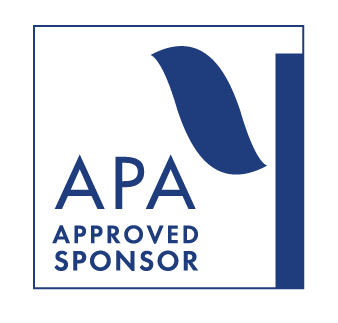
Producer: Vermont Psychological Association
Posttraumatic stress disorder (PTSD) and substance use disorders (SUDs) co-occur at high rates and this co-occurrence is generally associated with worse outcomes that either disorder alone. Dr. Peck will provide a summary of the literature on the epidemiology, assessment, and treatment of concurrent PTSD-SUD and an overview of the implementation of evidence-based practices for trauma in real-world substance use treatment settings.
By the end of this webinar, participants will be able to:
1. Define trauma and posttraumatic stress disorder (PTSD) according to the DSM-V.
2. Describe the prevalence of PTSD.
3. Identify publicly-available assessment measures of PTSD.
4. Identify evidence-based treatment for PTSD.
5. Discuss specific considerations for working with individuals with concurrent PTSD and substance use disorder.
 The Vermont Psychological Association is approved by the American Psychological Association to sponsor live continuing education for psychologists. The Vermont Psychological Association maintains responsibility for its programs and their content.
The Vermont Psychological Association is approved by the American Psychological Association to sponsor live continuing education for psychologists. The Vermont Psychological Association maintains responsibility for its programs and their content.
Completion of this course earns 1 continuing education credits. Psychologists licensed in states whose licensing board approves continuing education offered by APA-approved sponsors may earn continuing education credits for this course.
Courses sponsored by the Vermont Psychological Association are pre-approved for continuing education for psychologists by the Vermont Board of Psychological Examiners. This course qualifies for 1 continuing education credits.
Continuing education courses sponsored by the Vermont Psychological Association are pre-approved by the Vermont Office of Professional Regulation for continuing education credit for licensed independent clinical social workers in Vermont. This course provides 1 CE credits for Vermont licensing.
This course has been approved for continuing education credit by the Vermont Board of Allied Mental Health and earns 1 continuing education credits.
The Vermont Psychological Association is approved by the American Psychological Association to offer continuing education for psychologists. These credits are also accepted by the New Hampshire Board of Mental Health Practice for clinical social workers licensed in New Hampshire, as provided in Mhp 402.02(b)(1). The course qualifies for 1 continuing education credits.
The Vermont Psychological Association is approved by the American Psychological Association to offer continuing education for psychologists. These credits are also accepted by the New Hampshire Board of Mental Health Practice for clinical mental health counselors licensed in New Hampshire, as provided in Mhp 402.02(b)(1). The course qualifies for mandated credit types as follows:
Ethics:
Suicide Prevention:
The Vermont Psychological Association is approved to offer continuing education to licensed clinical social workers by the Vermont Office of Professional Regulation, and is approved by the American Psychological Association to offer continuing education to psychologists. This course thus qualifies for 1.2 continuing education credits for Massachusetts licensed certified social workers in Massachusetts under 258 C.M.R. §§ 31.04(2)(d), 31.04(5).
This course is offered by a sponsor approved to offer continuing education to clinical social workers in Massachusetts under 258 CMR sec 31.04(2)(d). This course earns 1.2 CE credits for clinical social workers.
|
Speaker Slides
(2.1 MB)
Slides for presenter's presentation |
73 Pages | Available after Purchase |
|
Research References
(75.2 KB)
Research references for presenter's material |
1 Pages | Available after Purchase |
